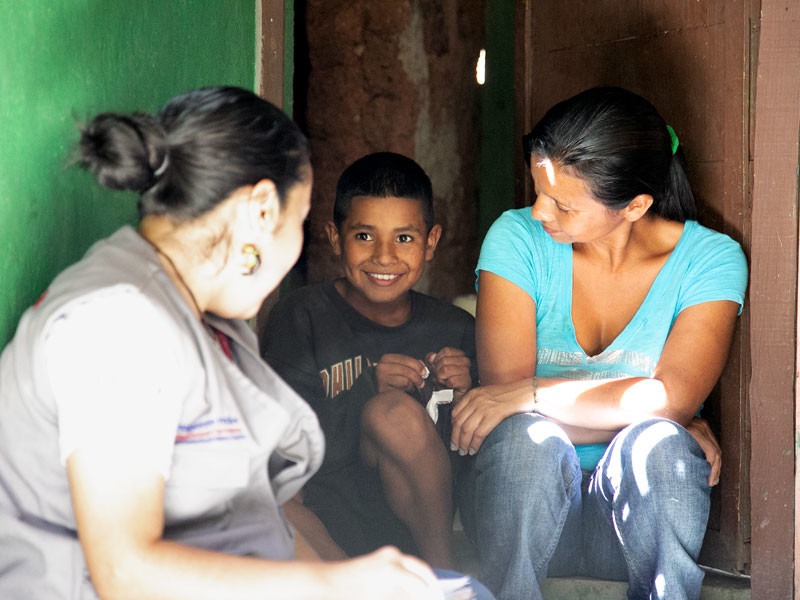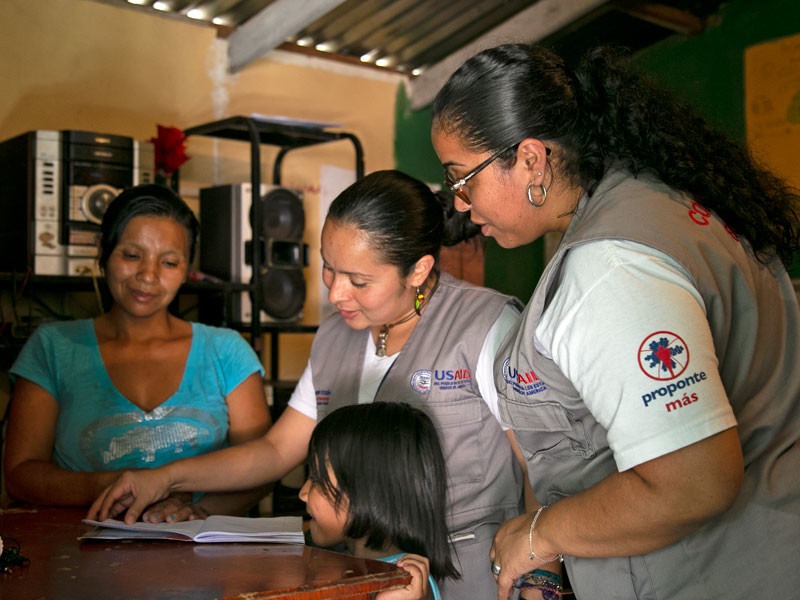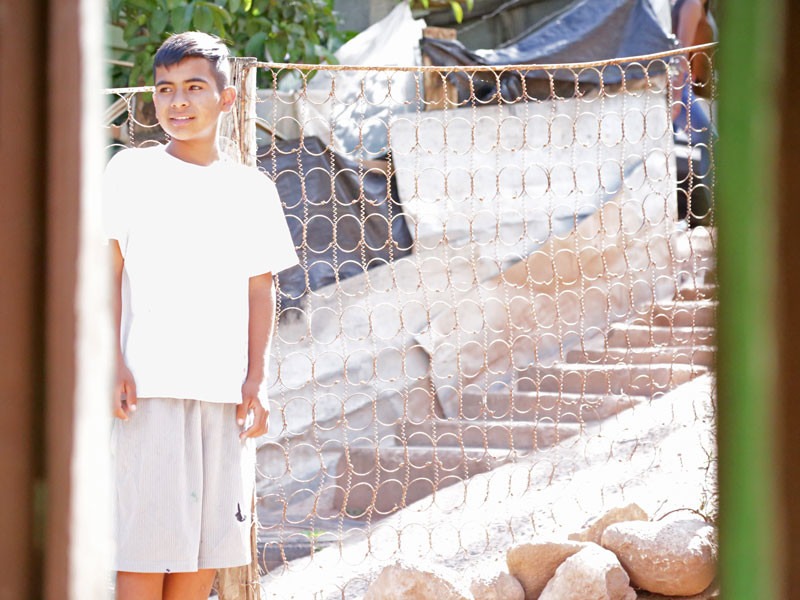Leaning into the doorway of her small home outside of the capital city, Esther calls for her four children to come take their seats on the patio. The two counselors, who are by now almost like part of the family themselves, have arrived.
The family counselors, Dinora and Nadia, are staff from the Proponte Más secondary violence prevention program. Proponte Más is funded by the U.S. Agency for International Development and implemented by Creative Associates International.
Over the course of six months, the pair visit Esther’s home to strengthen their family system, with the goal of reducing the behaviors and attitudes that put the eldest sibling, Nandito, at risk of engaging with the gangs that claim his neighborhood as their territory.

But today, Dinora and Nadia’s focus is on Esther. Parents and guardians play a crucial role in reducing risk factors and building protective factors to strengthen their kids’ resilience to gangs and violence. The family counselors therefore work to reestablish adults’ authority in the home and improve supervision.
“Counseling work would not be possible without the willingness from parents to put into practice the recommendations we give them,” Dinora says. “If parents are organized, it will be reflected in their children, and everyone can learn from this experience.”
In their previous visit, the counselors met with Esther and her husband Edilberto without the children present. They left the parents with some homework – to schedule 30 minutes a day for the two of them to talk about family issues and their kids’ needs.
Esther and Edilberto were asked to work together to establish household rules and make sure that they were being followed.
Esther says she is already seeing a big difference in how the children behave toward one another and toward their parents.
“Edilberto and I talked with the children and we put all the rules into practice. Since then, they fight less … and there is no yelling in the house.” she says. “[The counselors] have helped me a lot and I’m very grateful, because sometimes you can’t do it by yourself.”

Family-first solutions
Spending time hanging out on the street can be a risk in communities with high levels of violence and gang activity. By working with the family to improve parental supervision and authority, Proponte Más family counselors empower parents to change these and other behaviors that have been identified as risk factors for engaging with crime and violence.
“Sometimes [Nandito] would go out into the street … And the other kids would follow him because he’s the oldest,” Esther says. “But I’ve learned a lot from [the counselors]. Now he doesn’t go out, he respects me.”
Nadia and Dinora note that Esther and Edilberto’s case is unique – theirs is one of just a few two-parent households working with Proponte Más. In the communities in which the program works, migration, crime and violence have left many children being raised in blended households with a grandmother, aunt or other family member taking on the parental role.
But for Proponte Más, the motto is “la familia que hay” – “the family that is.” Regardless of what that family looks like, counselors work to strengthen relationships and communication to make sure vulnerable youth have the support systems they need. Nearly 300 families are currently receiving support from the program.

Another Proponte Más family counselor named Nheslhy says dedicating a portion of their time to the leaders in a household strengthens the entire family system and allows the adults in the house to keep implementing the lessons they’ve learned through counseling.
“We want the authority figures in the household to come to agreement and find the solutions within the family,” she says. “They have the solutions. We are just reminding them or helping them find that treasure that exists within the family and which they can sustain with their own norms, rules and authority.”
Through Proponte Más, the parents, grandparents, aunts, uncles, siblings, godparents and cousins that are raising youth are playing a vital role in building resilience.
“What they told me about the family I took to heart. I had never done these things before,” says Esther. “But thanks to the counseling, everything has improved, and we will continue to apply it … They’ve taught me a lot, and I have more to learn.”



